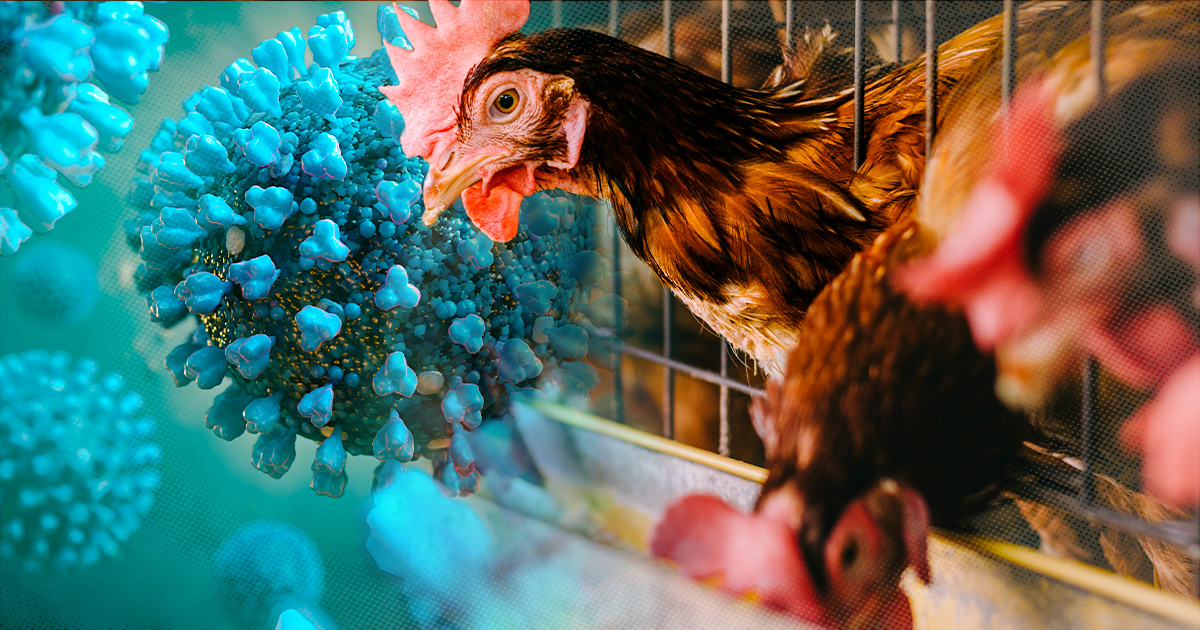Avian Influenza Transmission and Prevention

Avian influenza, commonly known as bird flu, is a highly contagious viral infection that affects birds. The virus can be transmitted to humans through contact with infected birds or their bodily fluids. Understanding the transmission routes and implementing preventive measures are crucial to protect both poultry and public health.
Avian influenza viruses are primarily spread through direct contact with infected birds or their feces, nasal secretions, or saliva. Infected birds shed the virus in their droppings, which can contaminate the environment and infect other birds or humans who come into contact with it.
Transmission Routes, Avian influenza
- Direct Contact: Handling infected birds, their carcasses, or contaminated surfaces.
- Inhalation: Breathing in aerosolized virus particles from infected birds or their droppings.
- Contact with Contaminated Surfaces: Touching surfaces or objects contaminated with the virus, such as poultry equipment, cages, or clothing.
- Ingestion: Consuming contaminated poultry products or water.
To prevent the spread of avian influenza, implementing comprehensive preventive measures is essential. These measures include:
Preventive Measures for Poultry Farms
- Biosecurity: Implementing strict biosecurity measures to prevent the introduction and spread of the virus within poultry farms.
- Vaccination: Vaccinating poultry against avian influenza to reduce the risk of infection and shedding of the virus.
- Surveillance: Regularly monitoring poultry flocks for signs of illness and testing for avian influenza to detect outbreaks early.
- Quarantine: Isolating infected or suspected birds to prevent the spread of the virus to other flocks.
- Disinfection: Thoroughly disinfecting poultry houses, equipment, and vehicles to eliminate the virus.
Preventive Measures for Individuals
- Avoid Contact with Infected Birds: Avoid handling or coming into close contact with sick or dead birds.
- Wash Hands: Wash hands thoroughly with soap and water after handling poultry or poultry products.
- Cook Poultry Thoroughly: Cook poultry to an internal temperature of 165°F (74°C) to kill any potential virus.
- Avoid Raw Poultry Products: Do not consume raw or undercooked poultry products, including eggs.
- Report Sick Birds: Report any sick or dead birds to local authorities for testing and investigation.
Avian influenza is a serious disease that can affect birds and humans. It’s important to be aware of the symptoms and to take precautions to avoid getting sick. If you’re planning on traveling to an area where avian influenza is present, be sure to check the latest travel advisories and take the necessary precautions.
You can also find more information about avian influenza on the shakira copa america website. Avian influenza is a serious disease, but it can be prevented by taking the necessary precautions.
Avian influenza, also known as bird flu, is a contagious viral infection that can affect both domestic and wild birds. It can cause severe illness and death in birds, and can also spread to humans and other animals. While avian influenza is a serious concern, it’s important to remember that there are many things we can do to prevent its spread.
One way to do this is to keep our homes and yards clean and free of bird droppings. We should also avoid contact with sick birds, and report any dead birds to the authorities. By taking these simple steps, we can help to protect ourselves and our communities from avian influenza.
Just like Alec Bohm’s home runs, avian influenza is something we can all work together to overcome. Read more about Alec Bohm’s home runs here.